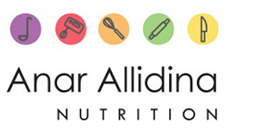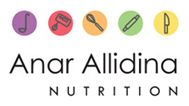08 Sep PCOS and Insulin Resistance: Not Just a Fertility Problem

What is the connection between PCOS and insulin resistance? September is Polycystic Ovary Syndrome (PCOS) awareness month. This hormonal condition can have a range of effects on a person’s body beyond their reproductive system.
Many people just associate PCOS with fertility, but it is so much more.
During PCOS awareness month, it is important to raise knowledge and awareness about the management of the condition. As a specialized registered dietitian, I help women manage PCOS and reduce their unwanted symptoms.
In today’s article, I will be going over the symptoms of PCOS, how PCOS is related to diabetes, and my four dietitian-approved tips to reduce your risk of diabetes. So, let’s get into it!
If you’re looking for more info on PCOS, check out my full blog post on PCOS diet and lifestyle tips!
Symptoms of PCOS
PCOS can lead to irregular cycles, excess hair growth, acne, and weight gain, among other things.
It’s caused by an imbalance in reproductive hormones that can affect the ovaries’ ability to release eggs regularly. This can make it challenging to conceive, which is why fertility problems are often associated with PCOS.
However, PCOS isn’t only about fertility. It can also increase the risk of other health issues, and one of the significant concerns is its link to type 2 diabetes.
Many individuals with PCOS have insulin resistance, which means their bodies have trouble using insulin effectively to control blood sugar levels. This can eventually lead to higher blood sugar levels and an increased risk of developing type 2 diabetes.
Wondering if you have PCOS? Here is a list of common symptoms:
- Irregular periods
- High levels of androgen hormones
- Enlarged ovaries
- Ovarian cysts
- Infertility
- Excessive hair growth
- Skin conditions
- And much more
PCOS and Insulin Resistance
The reason why PCOS increases your risk for diabetes is because of how PCOS affects the body’s insulin sensitivity.
Insulin is a hormone that helps regulate blood sugar levels, but in PCOS, the body might not respond to insulin as effectively as it should. This condition, called insulin resistance, can lead to higher blood sugar levels over time, increasing the risk of developing diabetes.
Not everyone with PCOS will have insulin resistance, but it’s quite common. In fact, it’s estimated that around 70-80% of people with PCOS might experience some degree of insulin resistance.
The best way to determine if you have insulin resistance or not is to talk to your healthcare team or a registered dietitian. It is important to start managing your blood sugar levels early on before the condition worsens!
4 Tips to Reduce Your Risk for Diabetes with PCOS

So, how can you reduce your risk of diabetes if you have PCOS? Let’s get into my best dietitian-approved tips for PCOS and insulin resistance.
Here are 4 tips to get started:
# 1 Nutrient-dense meals.
Focus on a balanced diet rich in whole grains, lean proteins, fruits, and vegetables. Nutrient-dense meals are like a superhero for insulin sensitivity. They provide your body with a balanced array of vitamins, minerals, healthy fats, proteins, and complex carbohydrates.
By opting for nutrient-dense meals, you’re essentially giving your body the tools it needs to process glucose effectively and maintain balanced blood sugar levels. This reduces the risk of developing insulin resistance and also helps manage existing insulin sensitivity issues. It’s all about nourishing your body with a variety of high-quality nutrients.
So, the next time you’re planning a meal, think about filling your plate with a colorful assortment of whole foods to support your body’s natural insulin sensitivity and overall health.
#2 Strength training.
The more muscle mass you have the more insulin sensitive you will be. Think of your muscles as little sugar sponges. The bigger and healthier they are, the more effectively they can soak up and use the sugar in your blood.
By building up your muscles through regular exercise, you’re improving your body’s communication with insulin and making it work more efficiently. It’s like giving your body’s insulin sensitivity a friendly boost!
#3 Wasit circumference trumps weight loss.
Waist circumference is a valuable indicator because it provides insights into the distribution of body fat, especially the fat that accumulates around the abdominal area.
Abdominal fat is a type of fat known as visceral fat and is closely linked to insulin resistance and various health risks. The health risks include type 2 diabetes, cardiovascular disease, and metabolic syndrome.
Waist circumference directly reflects the amount of abdominal fat, giving a more accurate picture of fat distribution and its potential impact on insulin sensitivity. Even before significant weight loss occurs, changes in waist circumference can indicate positive shifts in fat distribution and potentially improved insulin sensitivity.
Visceral fat is more metabolically active and releases substances that can contribute to insulin resistance and inflammation. So, even if overall weight remains stable, a decrease in waist circumference can reduce this harmful fat, making you more insulin-sensitive.
#4 Regular check-ups.
Keep up with regular medical check-ups to monitor your blood sugar levels and overall health. Routine bloodwork and check-ups can help catch any potential problems early.
Blood work to keep tabs on include:
- Fasting Glucose: This measures your blood sugar level after an overnight fast. A fasting glucose level above 100 mg/dL (5.6 mmol/L) may indicate prediabetes.
- Hemoglobin A1c (HbA1c): This test reflects your average blood sugar levels over the past 2-3 months. An HbA1c level of 6.0% to 6.4% indicates prediabetes.
- Insulin Levels: High insulin levels can indicate insulin resistance. If you have PCOS, you might want to monitor fasting insulin levels or undergo an insulin tolerance test.
- Lipid Profile: People with insulin resistance often have abnormal lipid profiles, including high triglycerides and low HDL cholesterol levels. Monitoring these levels can help assess your cardiovascular risk.
- C-reactive Protein (CRP): This marker can indicate inflammation in the body. Inflammation is associated with insulin resistance and increased diabetes risk.
- Vitamin D Levels: Vitamin D deficiency is common in individuals with PCOS and may be linked to insulin resistance and metabolic abnormalities.
It is recommended to get bloodwork done at least once a year. If you have PCOS, you may want to do it every 6 months instead.
PCOS and Insulin Resistance: The Takeaway
Remember, having PCOS doesn’t mean you’re destined to develop diabetes.
By taking proactive steps to manage your health, you can significantly lower your risk and enjoy a happy and healthy life!
The key is to adopt a healthy lifestyle that supports your overall well-being and reduces the risk of diabetes and other health complications associated with PCOS.
Imagine feeling confident when it comes to carbohydrates and your food choices and finally understanding how to lower insulin resistance without eating less and exercising more.
How great would it feel to wake up energized and not feel exhausted midday? And finally, getting a hold on your sugar cravings?
If these are your health goals, then I can help! If you want to reverse prediabetes, manage PCOS symptoms, or better manage type 2 diabetes then The Master Blood Sugar Balance Program is for you.




Sorry, the comment form is closed at this time.